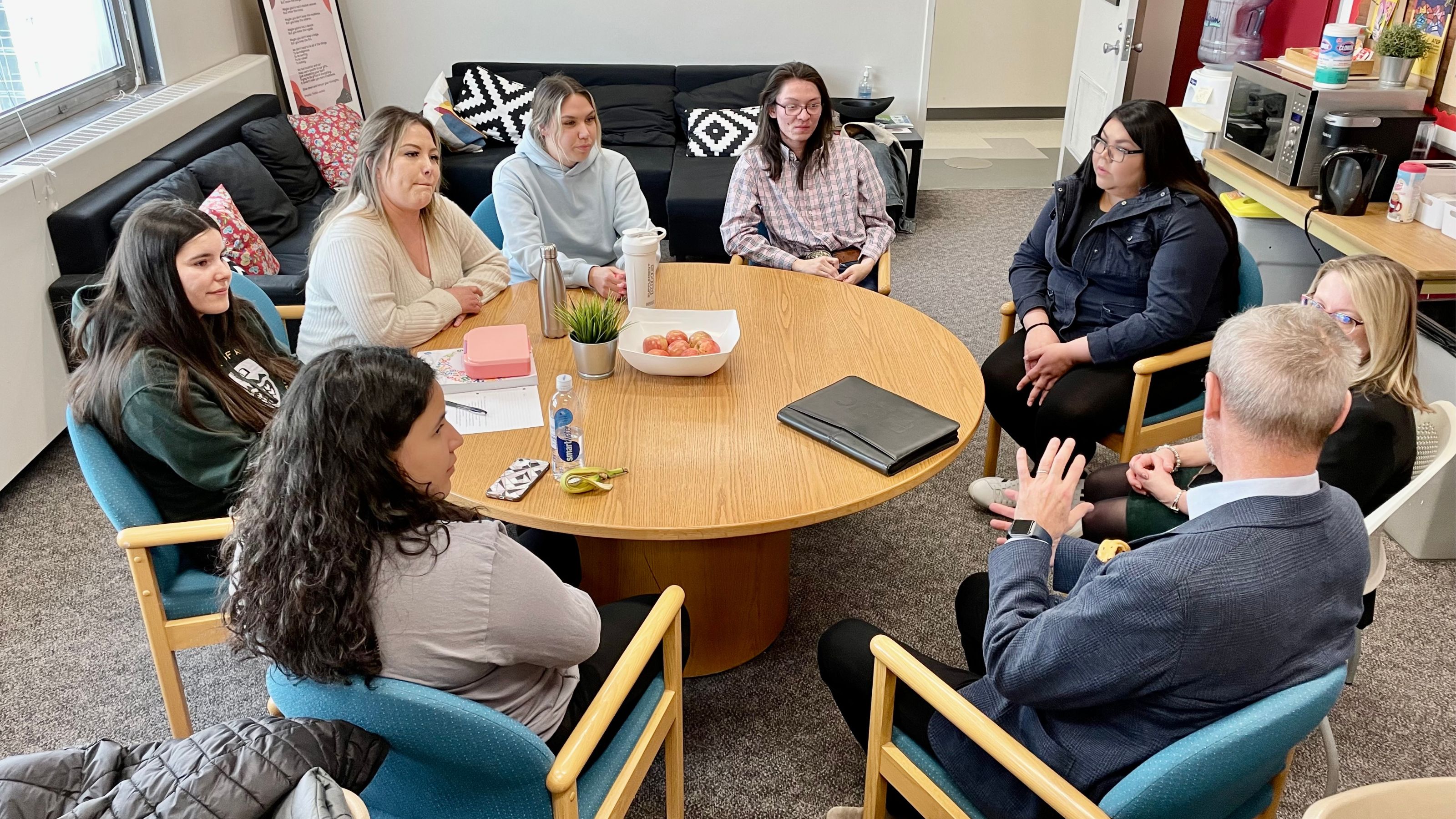I recently had the opportunity to spend an afternoon with students, faculty and staff in the Aboriginal Teacher Education Program (ATEP), a part of the U of A’s Faculty of Education.
Developed in 2002, ATEP is the province’s largest teacher education program focused on improving the educational outcomes of Aboriginal children by increasing the number of teachers with an understanding of Aboriginal perspectives in communities across Alberta. ATEP has since grown to include its first on-campus cohort in 2017 and its first four-year direct-entry elementary-focused program in 2021. To respond to the growing needs of working professionals in the education sector, the first online cohort of part-time evening students launched in the fall of 2022.
ATEP is unique – program requirements, instruction, and experiences are grounded in an Aboriginal worldview. ATEP attracts students from a diversity of Aboriginal groups and communities. As of September 2022, there are 212 students registered in the program, representing nine different Indigenous language groups.
The program’s foundational approach is based on Cree values and teachings, which is a reflection of the founders’ cultural values and the fact that the University of Alberta is situated on Treaty 6 territory. ATEP encourages and welcomes students to bring their own cultural values and teachings to enrich the program.
One of the first things I noticed when I arrived at the ATEP space on the 7th floor of the Education Building was the 13 guiding values (in both Cree and English) that are prominently displayed in the main corridor. The students, faculty and staff live these values daily – the sense of wâhkôhtowin (kinship), manâtisiwin and manâhchihitowin (respect and respect for each other) and wîcihitowin (sharing) – were evident from the moment I arrived.
I was fortunate to be able to spend time speaking with – and listening to – a group of current students. Each student had a unique story to tell. One thing that was common throughout their stories was their passion for teaching and helping others and the importance of Indigenous children seeing themselves represented in the school system.
Many of the students talked about inspirational teachers they had and how these teachers made a difference in their lives. After talking with these talented and determined students, I know they will inspire countless generations of students throughout their careers, too.
All of the students spoke very highly of their experience in the program and of the staff. I heard multiple stories of staff members leading with purpose and going above and beyond to help students succeed.
There’s an inspirational culture of care at ATEP. The students care about each other, cheer on each other’s successes, and help each other when needed. ATEP’s cohort study model – where students establish supportive relationships with each other as members of smaller groups based on their year of study and area of specialization – adds an additional layer of peer support and interconnection.
Speaking with faculty and staff – including Dr. Evelyn Steinhauer (Director and Professor) and Lynn Anderson Cook (Manager, Programs and Services) – it was evident that this culture of care runs both ways. The faculty and staff are open and welcoming, and many say they learn just as much from the students as the students learn from them. I also heard from the three kiskinwahamakewak, Academic Learning Facilitators, that are employed at ATEP. These kiskinwahamakewak are certified teachers who model traditional values by supporting and encouraging students’ development as students and future teachers and community leaders, and they are one of the robust support services offered to students.
I would like to sincerely thank the students, faculty and staff who took the time to tell me about their lived experiences and share their knowledge with me. It was an educational and inspirational afternoon and a great opportunity to learn more about one of the many small but mighty programs at the University of Alberta.
Bill Flanagan
President and Vice-Chancellor
A Note About Language:
Aboriginal is used in the name of the Aboriginal Teacher Education Program as a reflection of the current terminology encoded in the Constitution of Canada. Section 35 (2) of the Constitution Act states: In this Act, “aboriginal peoples of Canada” includes the Indian, Inuit and Métis peoples of Canada.
The University of Alberta is committed to the safety, health and well-being of our faculty, staff and students. Every day, we advance this commitment to safety through the Culture of Care.
